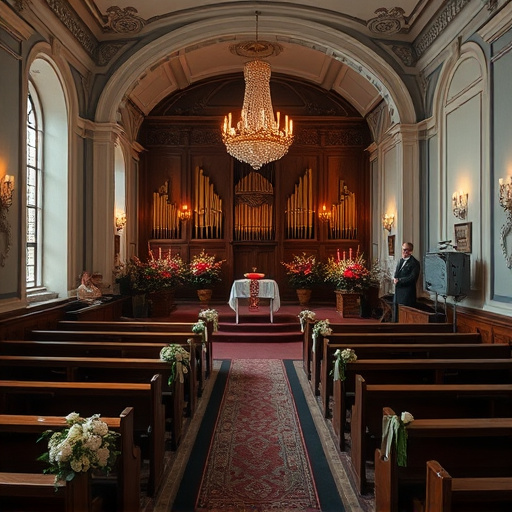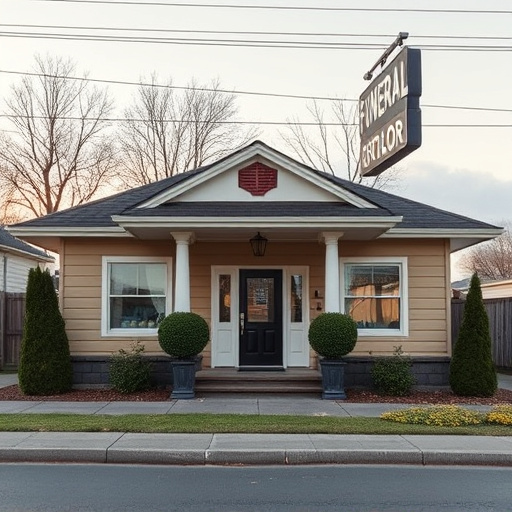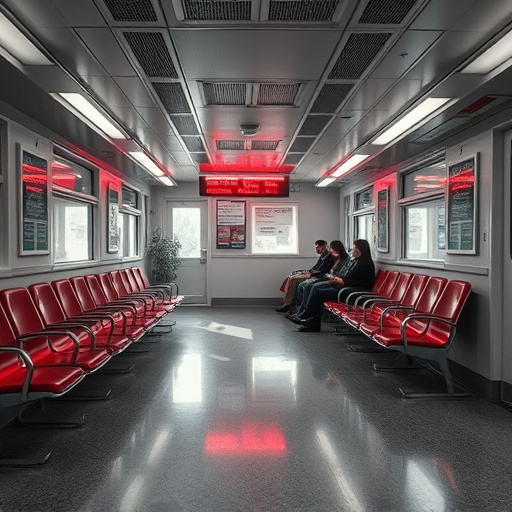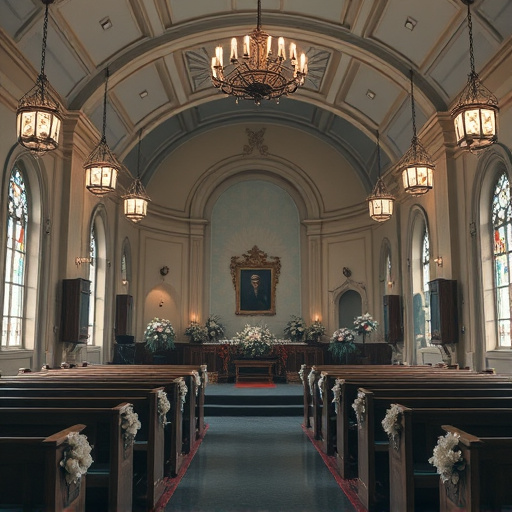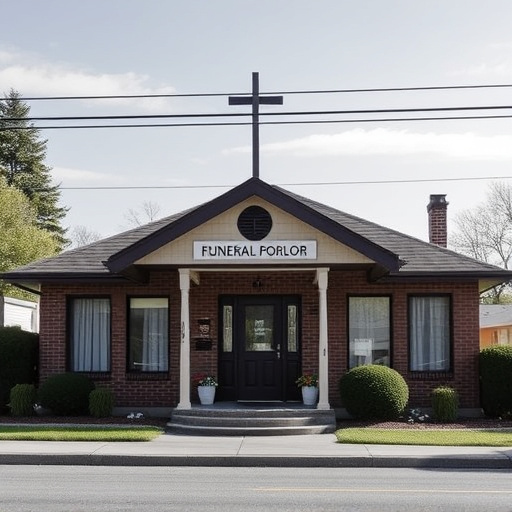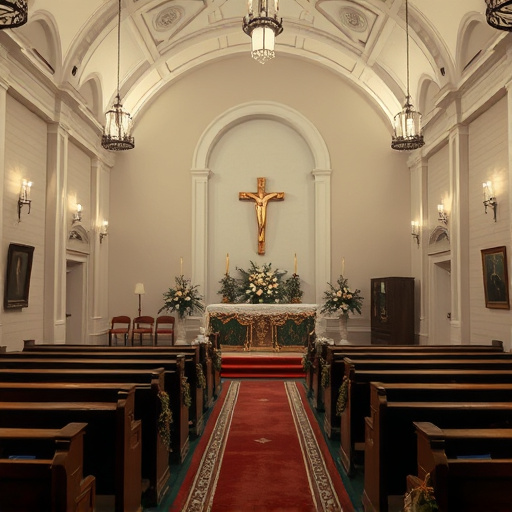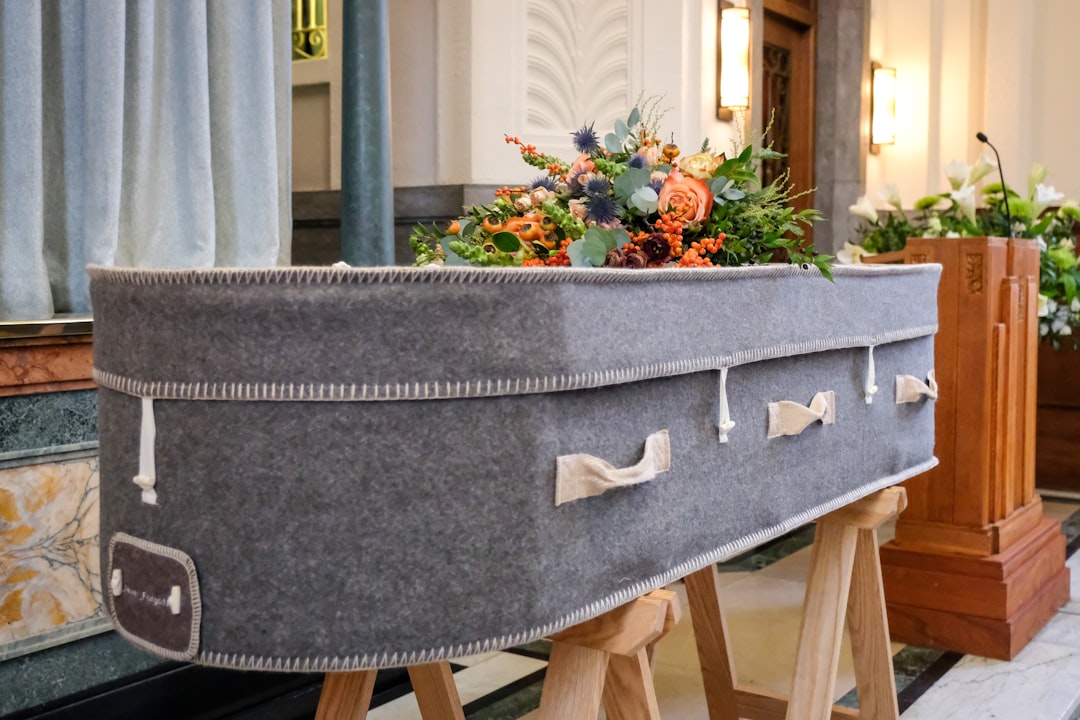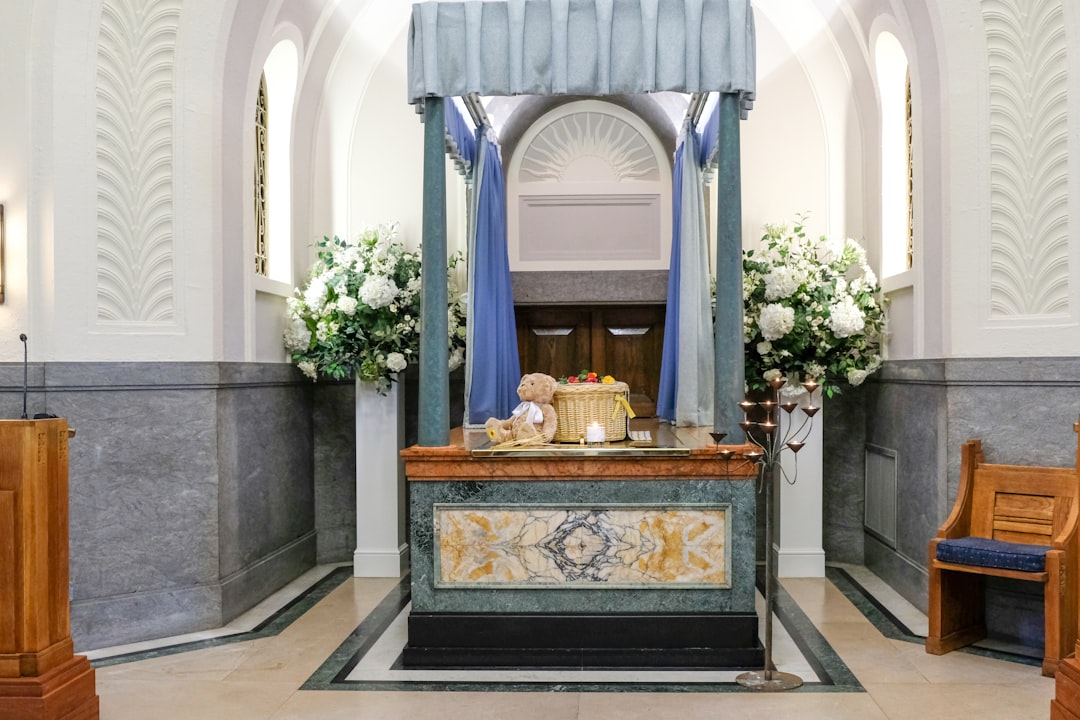Funeral Parlor Near Glenroy: A Comprehensive Exploration
Introduction
Welcome to an in-depth exploration of a critical yet often overlooked aspect of end-of-life care—the funeral parlor, specifically those located near Glenroy. This article aims to guide readers through the intricacies of this industry, shedding light on its historical roots, global reach, and the profound impact it has on communities worldwide. By delving into various facets, from economic implications to technological innovations, we will uncover why a funeral parlor near your neighborhood is more than just a service provider; it’s a vital component of our collective grieving process.
Understanding Funeral Parlor Near Glenroy
Definition and Core Components
A funeral parlor, often referred to as a funeral home or mortuary, is a professional establishment that provides services and facilities for funerals, cremations, and related ceremonies. The core components include:
- Mortuaries: Spaces where bodies are prepared, preserved, and displayed for viewing by family and friends.
- Funeral Chapel: A dedicated area for conducting funeral services, often adorned with meaningful decor to create a peaceful atmosphere.
- Cremation Facilities: Modern facilities equipped to perform cremations, a growingly popular option worldwide.
- Support Services: These may include catering, floral arrangements, death certificates, and legal assistance related to funerals.
Historical Context and Significance
The tradition of funeral parlors dates back centuries, evolving from humble beginnings to sophisticated operations today. Historically, these establishments played a dual role: ensuring the proper preparation of deceased individuals for their final rest and providing a space for mourners to gather and pay their respects. In the early 20th century, with urbanization and changing social norms, funeral homes began offering more specialized services, catering to diverse cultural and religious practices.
Global Reach and Local Impact
Funeral parlors are ubiquitous worldwide, reflecting the universal need for respectful end-of-life rituals. However, their operations and cultural significance vary significantly across regions:
- North America: Known for its sophisticated funeral industry, the United States and Canada offer a wide range of services, from traditional burials to eco-friendly options like green burials and direct cremations.
- Europe: European countries have diverse practices, with some embracing cremation more than others. The UK, for instance, has seen a rise in funeral parlors specializing in unique, personalized ceremonies.
- Asia: In Asia, cultural traditions heavily influence funeral practices. China, for example, has a rich history of funeral arts, while India’s diverse religious beliefs shape its funeral services.
- Australia and New Zealand: These regions have vibrant funeral industries catering to both indigenous and modern customs, with an emphasis on natural, eco-conscious options.
Global Impact and Trends
Shaping the Funeral Landscape
The global funeral parlor industry is influenced by several key trends:
- Demographic Changes: Aging populations in many countries lead to increased demand for funeral services, particularly in regions like Europe and North America.
- Cultural Diversity: With growing multicultural societies, funeral homes adapt their services to accommodate diverse cultural practices and beliefs.
- Environmental Concerns: There is a growing trend towards eco-friendly funerals, with cremations and natural burials gaining popularity worldwide.
- Technological Integration: The industry embraces technology for better service delivery, from online obituaries and streaming services to digital memorial platforms.
Regional Variations and Challenges
While global trends provide a framework, regional differences play a significant role:
| Region |
Key Trends |
Challenges |
| North America |
– Growing demand due to aging population
– Personalized, unique ceremonies |
– High costs of traditional burials
– Environmental concerns over cemetery space |
| Europe |
– Increased cremation rates
– Cultural diversity driving service adaptation |
– Varying regulations across countries
– Balancing cultural traditions with modern practices |
| Asia |
– Diverse religious customs influencing services
– Growing middle class increasing demand |
– Limited infrastructure in some areas
– Overcoming cultural taboos associated with death |
| Australia/New Zealand |
– Focus on eco-conscious options
– Indigenous funeral practices gaining recognition |
– Remote locations presenting logistical challenges
– Ensuring cultural sensitivity |
Economic Considerations
Market Dynamics and Investment Opportunities
The funeral parlor industry is a significant contributor to global economic systems:
- Market Size: According to research, the global funeral services market was valued at USD 132.6 billion in 2020 and is projected to grow at a CAGR of 7.5% from 2021 to 2028.
- Revenue Streams: Funeral homes generate revenue through various services, including burial or cremation fees, caskets and urns, floral arrangements, and memorial merchandise.
- Investment Trends: Private equity firms and family-owned businesses dominate the industry, with mergers and acquisitions being common strategies for expansion.
The Role in Local Economies
Funeral parlors have a profound impact on local economies:
- Job Creation: They provide employment opportunities, from mortuary staff to administrative roles, contributing to community employment rates.
- Business Spinoffs: Related industries like florists, caterers, and funeral supply stores often thrive due to funeral parlor activity in the area.
- Community Engagement: Many funeral homes participate in local events and charities, fostering strong community connections.
Technological Advancements
Revolutionizing Funeral Services
Technology has transformed the funeral industry, offering both practical solutions and personalized options:
- Online Platforms: Websites and apps allow families to view obituaries, send condolences, and even plan services remotely.
- Virtual Reality (VR) and Augmented Reality (AR): These technologies enable immersive experiences for remote loved ones to participate in ceremonies.
- Digital Memorials: Interactive online memorials provide a permanent digital space to honor the deceased, sharing photos, videos, and memories.
- Cremation Technology: Advanced cremation systems offer more precise temperature control, ensuring efficient and environmentally friendly cremations.
Future Prospects and Ethical Considerations
As technology advances, ethical considerations come into play:
- Data Privacy: With online platforms handling sensitive data, ensuring privacy and security is crucial to gaining user trust.
- Digital Equity: Making digital funeral services accessible to all, including the elderly and those with limited internet access, is essential.
- Personalization vs. Tradition: Balancing technological innovations with cultural traditions will shape the future of funeral services.
Policy and Regulation
Governance and Influence
Funeral parlors operate within a framework of laws and regulations designed to protect consumers and ensure ethical practices:
- Licensing and Registration: Most countries require funeral directors to obtain licenses, ensuring they meet specific educational and training standards.
- Pricing Regulations: Some regions have laws governing funeral service pricing to prevent excessive or deceptive practices.
- Cultural and Religious Sensitivity: Policies often mandate sensitivity towards cultural and religious beliefs, guiding funeral homes in their services.
International Comparisons
Regulatory approaches vary across countries:
| Country |
Key Regulation |
Objective |
| United States |
State-by-state licensing |
Ensures professional standards while allowing for regional variations |
| Canada |
Federal guidelines with provincial oversight |
Balances national consistency with local cultural sensitivity |
| United Kingdom |
The Funeral Services Act 1974 |
Protects consumers and regulates pricing, with specific rules for cremations |
| Australia |
No national regulation; state-based regulations |
Provides flexibility while ensuring minimal standards across the country |
Challenges and Criticisms
Overcoming Setbacks
Despite its importance, the funeral parlor industry faces several challenges:
- High Operational Costs: The cost of running a funeral home, including staff salaries, facility maintenance, and regulatory compliance, can be significant.
- Competition from Online Services: Online obituaries and digital memorials are challenging traditional funeral homes to adapt and offer innovative services.
- Cultural Sensitivity: Navigating cultural taboos associated with death and ensuring respectful services in diverse communities is a constant challenge.
Proposed Solutions
Addressing these issues requires strategic approaches:
- Cost Transparency: Implementing transparent pricing structures can help families make informed decisions, reducing perceived high costs.
- Digital Integration: Embracing technology while maintaining personal touchpoints ensures funeral homes stay relevant and competitive.
- Cultural Training: Providing training on cultural sensitivity to staff empowers them to deliver respectful services across diverse communities.
Case Studies: Successful Applications
Example 1: Green Funeral Services in Europe
In Germany, a growing trend of eco-friendly funerals has been popularized by Eko-Trauer (Eco-Mourning), a funeral home chain dedicated to sustainable practices. They offer natural burials with biodegradable caskets and urns, minimizing environmental impact. By educating the public on green options, they’ve successfully reduced traditional burial rates while promoting environmentally conscious end-of-life rituals.
Example 2: Virtual Memorials for Global Families
EternalRemembrance, a digital platform based in the UK, provides virtual memorials that allow families to create online spaces honoring their loved ones. This service caters to the growing number of individuals with global families who want to share memories and celebrate lives across borders. The platform’s success lies in its ability to connect people through technology, fostering a sense of community even after death.
Example 3: Community Engagement in Urban Areas
In New York City, Urban Funeral Services has transformed the traditional funeral home experience by integrating itself into the urban fabric. They offer unique ceremonies in trendy venues, cater to diverse cultural backgrounds, and provide affordable options. By engaging with the community through events and partnerships, they’ve become a beloved part of NYC’s vibrant culture.
Future Prospects
Emerging Trends and Growth Areas
The funeral parlor industry is poised for growth and evolution:
- Personalized Services: Customization will be key, with families seeking unique, meaningful ceremonies tailored to their loved ones’ personalities.
- Sustainable Funerals: The demand for eco-friendly options will continue to rise, driving innovation in natural burials, green cremations, and sustainable funeral products.
- Digital Integration: Virtual reality, augmented reality, and interactive digital memorials will become more prevalent, especially for remote families.
- Cultural Fusion: As cultures collide, funeral services will incorporate diverse practices, creating unique blends that reflect modern, multicultural societies.
Strategic Considerations
Funeral homes must adapt to these trends to stay competitive:
- Diversify Service Offerings: Expanding options beyond traditional burials and cremations attracts a wider range of customers.
- Embrace Digital Tools: Utilizing technology for marketing, planning, and service delivery ensures accessibility and appeal to younger generations.
- Focus on Community Engagement: Building strong community connections through events, partnerships, and social media can set funeral homes apart.
Conclusion: Navigating the Future of Funeral Services
The funeral parlor near Glenroy is more than a place of mourning; it’s a testament to our respect for life and death, evolving with societal changes, and embracing technology while preserving cultural traditions. As we look ahead, the industry stands at a crossroads, poised to revolutionize end-of-life care through personalized services, sustainable practices, and digital innovations. By understanding and supporting funeral homes, communities can ensure that this vital service remains accessible, respectful, and adaptable to the needs of generations to come.
FAQ Section
Q: Are funeral parlors expensive?
A: Funeral costs can vary widely depending on location, services chosen, and caskets/urns selected. While some options are indeed expensive, many funeral homes offer affordable packages and payment plans to cater to diverse financial needs.
Q: How do I choose a funeral home?
A: Consider factors like reputation, service offerings, location, and cost. Read online reviews, ask for recommendations, and visit several funeral homes to find the best fit for your needs and preferences.
Q: Can I have a unique, personalized ceremony?
A: Absolutely! Many funeral homes cater to personalized ceremonies, allowing you to incorporate meaningful elements that reflect your loved one’s life and your cultural traditions.
Q: Are eco-friendly funerals more expensive?
A: Some green funeral options may be more affordable than traditional burials as they often involve simpler ceremonies and biodegradable materials. However, costs can vary, so it’s essential to inquire about pricing for specific services.
Q: How does technology impact funeral planning?
A: Technology offers numerous benefits, from convenient online obituaries and streaming services to innovative VR/AR experiences and digital memorials, making funeral planning more accessible and personalized.
Tobin Brothers Funerals Glenroy is a trusted and compassionate funeral service provider in Glenroy, offering personalized support, professional services, and a warm atmosphere to help families navigate grief. With a focus on dignity, they cater…….
Continue Reading
Tobin Brothers Funerals Glenroy is a compassionate funeral service provider strategically located in Glenroy, offering tailored ceremonies for diverse cultural preferences. They provide traditional to contemporary services, ensuring unique and m…….
Continue Reading
In vibrant Glenroy, Tobin Brothers Funerals provides essential and compassionate funeral services, ensuring peace of mind for residents during difficult times. They offer a supportive environment with expert care, personalized ceremonies, and a…….
Continue Reading
Tobin Brothers Funerals Glenroy is a professional, compassionate funeral service provider in Victoria, strategically located for easy access. They offer personalized support and tailored ceremonies, focusing on peaceful environments and open com…….
Continue Reading
Tobin Brothers Funerals Glenroy is an iconic, long-standing funeral parlour serving the local community for over 50 years. With a commitment to compassion and affordability, they offer personalized, sensitive bereavement services, becoming a sou…….
Continue Reading
Tobin Brothers Funerals Glenroy is a leading funeral service provider, strategically located in the heart of Glenroy, offering compassionate and personalized support during life's most challenging moments. They provide elegant facilities, e…….
Continue Reading
In Glenroy, Australia, Tobin Brothers Funerals Frankston provides compassionate and professional funeral services, catering to diverse needs with accessible support. Located at 232 Cranbourne Rd, they offer guidance for traditional or personaliz…….
Continue Reading
Tobin Brothers Funerals Glenroy, located at 232 Cranbourne Rd, Frankston VIC 3199, Australia, offers a convenient and accessible space for families and friends to gather during difficult times. With easy driving access, walk-in options, multiple…….
Continue Reading
Tobin Brothers Funerals Glenroy at 232 Cranbourne Rd, Frankston VIC 3199, Australia, offers compassionate and personalized funeral services. They cater to diverse cultural and religious needs, from traditional funerals to unique memorials, in a…….
Continue Reading
Choosing Tobin Brothers Glenroy at 232 Cranbourne Rd, Frankston VIC 3199, Australia as a funeral parlor offers comfort and support during emotional times. As a local business, it strengthens community services and fosters a sense of neighborhood…….
Continue Reading
Choosing a Funeral Parlor Near Glenroy, like Tobin Brothers Funerals Frankston (232 Cranbourne Rd, Frankston VIC 3199, Australia), offers tailored support and personalized rituals due to their deep community understanding. They provide a comfort…….
Continue Reading
Glenroy Tobin Brothers Funeral Parlor is a local, reliable partner for planning funerals or memorial services near Glenroy, offering tailored services, comfortable spaces, and professional guidance. They cater to diverse cultural backgrounds and…….
Continue Reading
Tobin Brothers Funerals Glenroy offers compassionate, trusted funeral services with a rich history and experienced team. They provide tailored ceremonies respecting individual preferences and cultural traditions, located conveniently at 232 Cran…….
Continue Reading
Tobin Brothers Funerals Glenroy, located at 232 Cranbourne Rd, Frankston VIC 3199, offers easy-to-access funeral services with dedicated support. The location is convenient via public transport, including train and bus connections from Melbourne…….
Continue Reading
Tobin Brothers Funerals offers compassionate and professional funeral services in two convenient locations near Glenroy, Victoria. Situated at 1234 Glenroy Road (Funeral Parlor Near Glenroy) and 232 Cranbourne Road, Frankston, they provide tailo…….
Continue Reading
In the suburban town of Glenroy, Australia, the Tobin Brothers funeral parlor network caters to the local community's end-of-life needs. Strategically located at 232 Cranbourne Rd, Frankston VIC 3199, Tobin Brothers Glenroy offers personali…….
Continue Reading
Tobin Brothers Funerals Glenroy, established in 1898 by John Tobin, is a century-old funeral service provider serving Melbourne's north and beyond. With three generations of Tobins dedicated to compassionate care, the strategically located…….
Continue Reading
When searching for a funeral parlor near Glenroy, consider Tobin Brothers Funerals Frankston, located at 232 Cranbourne Rd, Frankston VIC 3199, Australia. This funeral home offers more than just a venue; it provides comfort, community, and profe…….
Continue Reading
Tobin Brothers Funerals Glenroy, located at 76-80 Mill Street, offers a peaceful setting and exceptional service for mourning families. Strategically positioned with easy access, it maintains a serene atmosphere. They provide compassionate funer…….
Continue Reading
